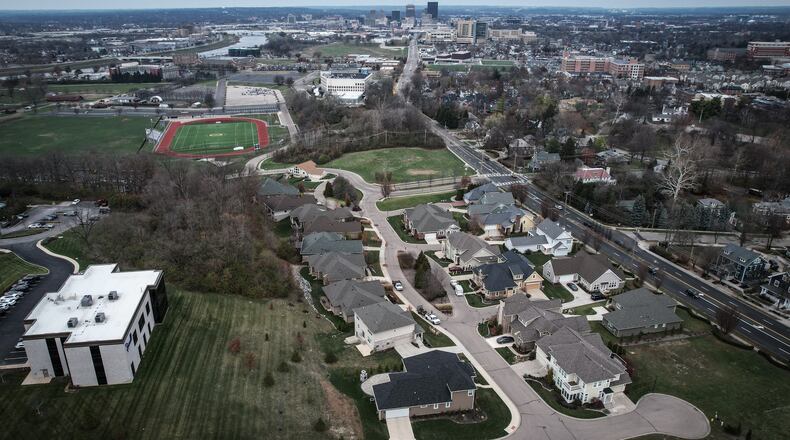Residents who live in or near the upscale Pointe Oakwood development cited a variety of concerns they have about the plan by Russell Total Wealth and Wellness, including noise, a negative impact on property values, unwanted lighting and water runoff.
“I’m not sold on changing anything in a negative manner for these property owners,” said Councilman Rob Stephens before he voted against the plan. “And I don’t want to do something that could decrease their property value.”
Councilwoman Leigh Turben cited residents’ concerns about property values in changing her mind and voting against the plan.
Two hours before, “I thought that I would (vote to) approve the pickleball court,” Turben said. “But I think at this point I would decline it.”
Councilwoman Healy Jackson, who joined Mayor Bill Duncan in voting for the plan, said noise “is part of being in the neighborhood.”
Russell wants to build an estimated 30- by 60-foot, private outdoor court at its corporate headquarters.
The Russell and Pointe Oakwood sites were once occupied by Sugar Camp, a National Cash Register sales training camp used by the U.S. Navy during World War II to develop a secret project.
Russell’s proposal is “consistent with the recommendations” in a 2004 NCR Sugar Camp plan and other documents and city guidelines, Oakwood records show.
But the court would be considered a special use to what is now the Sugar Camp and Pointe Oakwood master plan.
Some residents said the proposal lacks specifics on the issues of lighting, buffering and how water runoff would be contained so as not to impact their properties just east of the business.
A water drainage study has been reviewed and approved by the city, said Miller Valentine’s Tim Parker, who represents the applicant.
“The new (runoff) would be directed” away from Pointe Oakwood, Parker said.
Regarding noise issues, the pickleball court would be “in the most feasible location,” more than 130 feet from the nearest Pointe Oakwood property, he said.
The court would be buffered with about 30 six-foot trees surrounding it, Parker said.
However, many who opposed the plan, including Byington, remained concerned that the buffering would be insufficient.
“I think noise is going to be the biggest issue,” Byington said. “I don’t think anybody has ever seen a study … that says the sound of the pickleball is a desirable noise.”
Others opposed to the plan said council’s approval of it would amount to giving preferential treatment to a business operator who does not live in the city while largely ignoring Pointe Oakwood residents, who collectively pay about $250,000 a year in property taxes.
Marietta Orlowski said many of the Pointe Oakwood homes have large rear patios facing the Russell site and a court would “directly impact us using part of our homes.”
She told council, “You should be our advocates.”
Her husband, Garett, said studies have shown that pickleball courts built near homes lead to an average of 10-20% in property value depreciation.
Many of the Pointe Oakwood homes are valued at $450,000 or more, Montgomery County real estate records show.
About the Author

